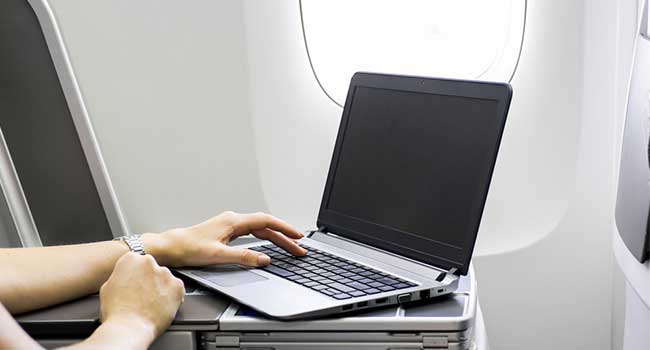
Tech Ban on Some Foreign Flights into the U.S.
The Transportation Security Administration in the United States has ordered nine airlines to stop passengers from bringing most types of electronic devices, except smartphones, into the cabin for U.S.-bound flights. Instead, passengers will have to check their devices.
The move won’t go into effect until 96 hours after its signing to allow for the countries, airlines and airports to make proper announcements and arrangements.
At a White House Press Briefing Sean Spicer described the motion as a security precaution, but would not give specifics as to why the tech ban was justified. Reports say that the U.S. is especially worried about these particular airports based on screening issues and the possibility of terrorists infiltrating the ranks of authorized airport personnel.
The tech ban covers 10 airports out of 250 airports that are last place of departures towards the United States. Here is the full list of countries affected and the airports associated with them:
- Cairo International - Cairo, Eqypt
- Dubai International - Dubai, UAE
- Abu Dubai International – Abu Dubai, UAE
- Ataturk International – Istanbul, Turkey
- Hamad International – Doha, Qatar
- Queen Alia International – Amman, Jordan
- Kuwait International – Kuwait
- Mohammed V International – Casablanca, Morocco
- King Abdulaziz International – Jeddah, Saudi Arabia
- King Khalid International – Riyadh, Saudi Arabia
The nine airlines that operate direct flights to the U.S. from affected airports are Egyptair, Emirates Airline, Etihad Airways, Kuwait Airways, Qatar Airways, Royal Air Maroc, Royal Jordanian Airlines, Saudi Arabian Airlines and Turkish Airlines.
Smartphones and devices of similar size will be allowed on board, but passengers will have to check in any electronic devices bigger than that including: laptops, cameras, gaming devices larger than a smartphone, and tablets such as iPads. Medical devices will be allowed on board after going through the screening process.
The U.K. government has also followed suite, banning technology from incoming flights from five countries including Turkey, Lebanon, Egypt, Tunisia and Saudi Arabia and affects 14 different airlines.